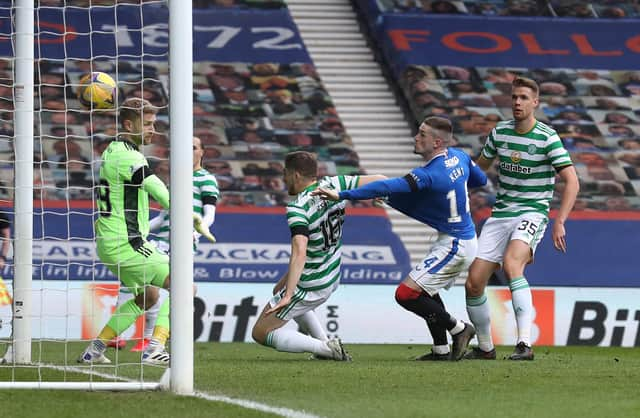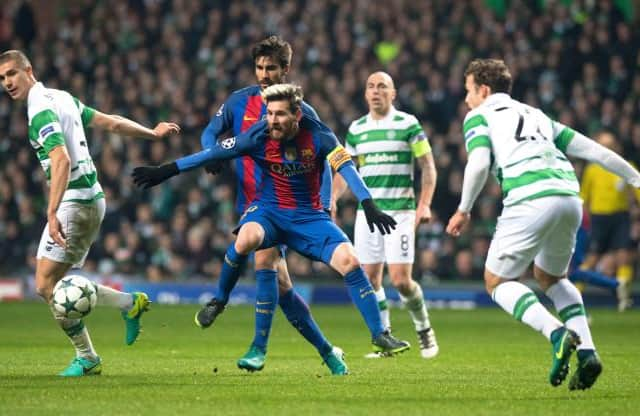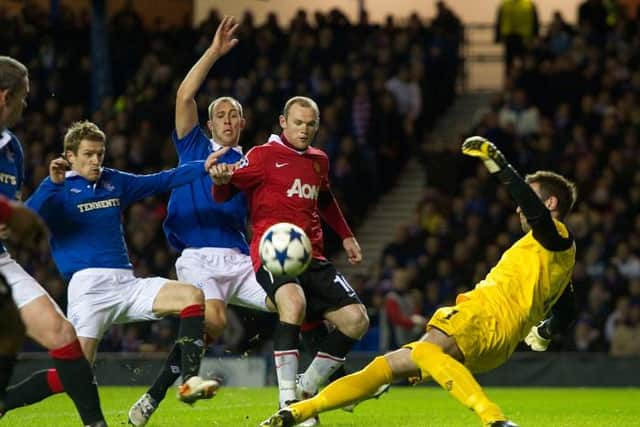What the European Super League means for Celtic, Rangers and the rest of Scottish football


The protectionism involved in the project, funded by American banking giant JP Morgan, goes against all of the ideals of the world’s greatest sport being operated as a competitive meritocracy.
It remains to be seen whether AC Milan, Arsenal, Atletico Madrid, Chelsea, Barcelona, Inter Milan, Juventus, Liverpool, Manchester City, Manchester United, Real Madrid and Tottenham Hotspur are simply engaged in a game of brinkmanship with UEFA as they seek an even bigger slice of football’s financial pie.
Advertisement
Hide AdAdvertisement
Hide AdBut those ‘Founding Clubs’, as they describe themselves, have certainly succeeded in posing the most serious threat yet to the authority of European football’s governing body.


UEFA on the back foot
UEFA had hoped their plans for a reformed Champions League involving 36 teams in the group stage from 2024, which are due to be ratified at their executive committee meeting in Montreux today, would appease the growing clamour from the bigger clubs for more guaranteed places in their elite competition.
But UEFA cannot hope to compete with the €3.5 billion each of the ‘Founding Clubs’, and another three as yet unidentified clubs who will make up the 15 permanent places in the 20-team Super League, will receive simply as an initial payment for joining the new set-up.
UEFA, backed by FIFA, will throw everything they have from a legal point of view to halt the Super League in its tracks. But the clubs involved appear more confident than ever they are within their rights to establish a competition which would change the face of European football forever.


Old Firm on alert
The potential ramifications for Scottish football are not easy to assess. At the top end of our game, Rangers and Celtic will certainly be watching developments with great interest.
It is unclear so far how the Super League will determine the procedure for the five clubs who will qualify to play in their competition each season. The size, historical status and fanbase of the Old Firm clubs could certainly be viewed as attractive from the Super League’s perspective.
The competition would also offer a financial lure which Glasgow’s giants, irrespective of any misgivings their supporters may share with those of other clubs about the morality of the Super League, would find difficult, if not impossible, to resist.
If the Super League does go ahead, then the stature of the Champions League will clearly be diminished. There will also be a knock-on effect for the Europa League and the new third-tier UEFA Conference League which will start next season.
Advertisement
Hide AdAdvertisement
Hide AdBut those tournaments will remain important for the vast majority of European clubs left on the outside looking in by the Super League behemoths.
Potential benefits for Scottish clubs
While the financial rewards will not remotely compare to the vast sums the Super League appear to have negotiated for themselves, they will remain significant for clubs from countries of Scotland’s size.
For Rangers and Celtic, the path to the group stage of the Champions League might actually become a less arduous one to negotiate on a consistent basis if the tournament has to be reconfigured as a consequence of the departure of the Super League clubs.
The same theory could apply for other clubs with European aspirations such as Aberdeen, Hibs and Hearts in the seasons to come. Group stage football, whether in the Europa League or Conference League, could become a more regular occurrence which would enhance their balance sheets and also be welcomed by their fans.
Domestically, the biggest potential impact upon Scottish football would be in the event that either or both of the Old Firm clubs did decide to get involved in trying to qualify for the Super League.
That would leave the Scottish FA and Scottish Professional Football League with a major headache. If UEFA can back up their threat to ban Super League clubs from playing in any other domestic or European competitions under their auspices, then the Scottish FA would have no option but to issue expulsions.
Home comforts
In that hypothetical scenario, how would the Scottish Premiership be regarded without one or both of its biggest clubs? It’s a debate we are not unfamiliar with, the issue having been raised many times before when different incarnations of a so-called Atlantic League were proposed and which attracted the interest of Celtic and Rangers.
Many feel the top flight could survive and even thrive without them, becoming a more widely competitive league and offering multiple clubs the opportunity to become Scottish champions. Scottish football supporters, who regularly deliver the highest average attendances per capita of any country in Europe, are fiercely loyal to their clubs regardless of the wider environment they operate within. That is unlikely to change, irrespective of the formation of a European Super League or whether the Old Firm are tempted away to pastures new.
Advertisement
Hide AdAdvertisement
Hide AdAs well as the potential for the Atlantic League to rear its head again, perhaps as part of the qualification process to the Super League for teams from countries like Belgium, Netherlands and Scotland, the English Premier League may also find itself having to restructure.
Could that mean the long-mooted involvement of Rangers and Celtic in England’s top flight may come to pass?
The only certainty right now is that the European Super League clubs have drawn unprecedented battle lines in the war for the game’s future and soul.
A message from the Editor: Thank you for reading this article. We're more reliant on your support than ever as the shift in consumer habits brought about by coronavirus impacts our advertisers. If you haven't already, please consider supporting our trusted, fact-checked journalism by taking out a digital subscription.
Comments
Want to join the conversation? Please or to comment on this article.